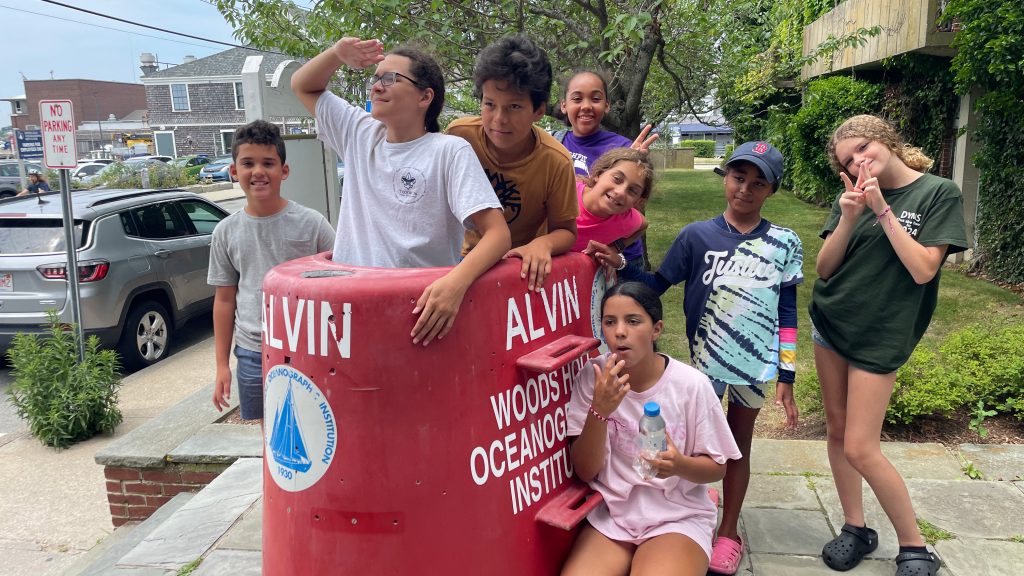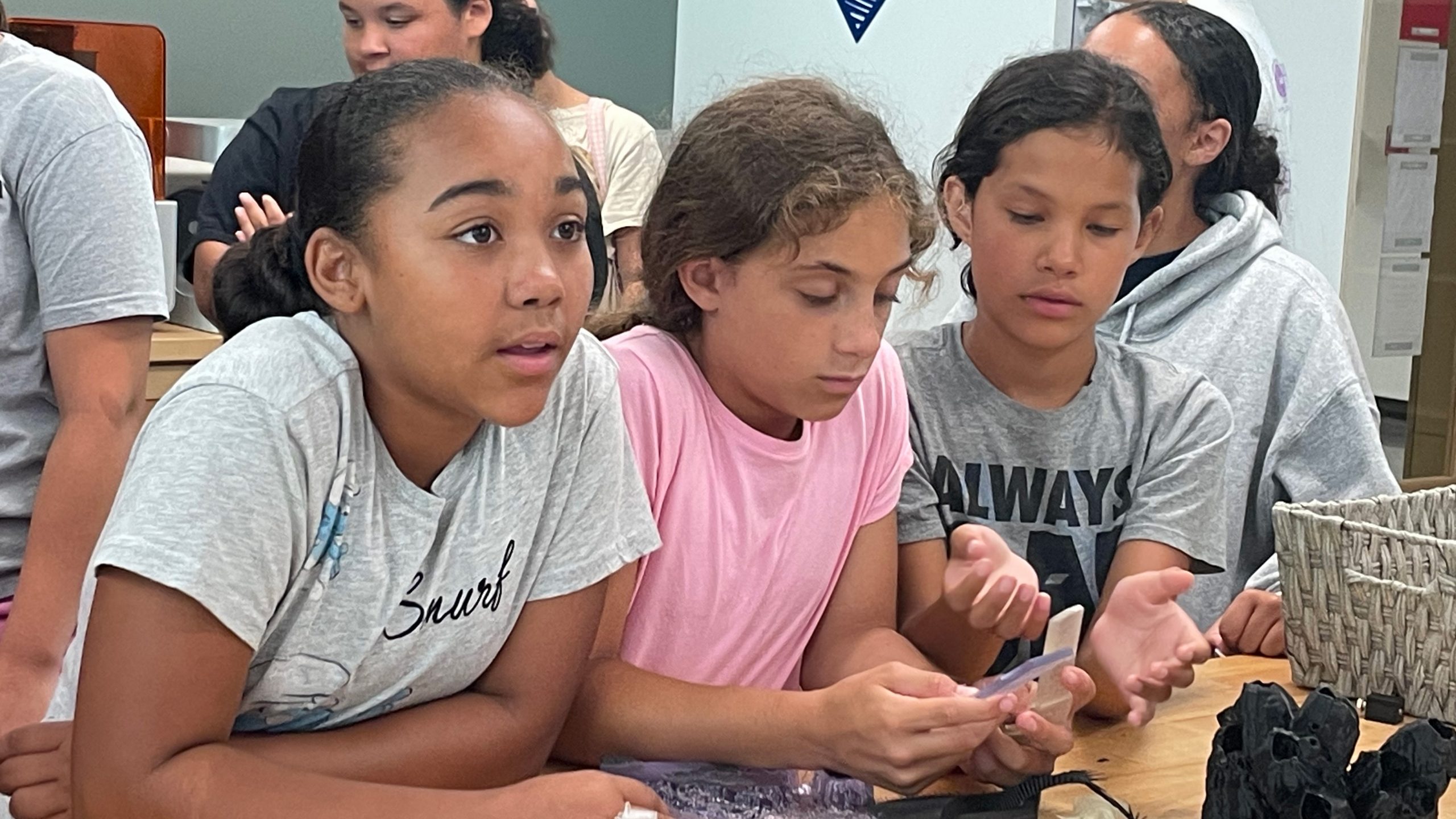Preserving Our Homelands Camp Comes to WHOI

Most science educators will tell you, if you want to get kids excited about science, you have to actually do science. Last summer WHOI Sea Grant had the opportunity to participate in the annual “Preserving Our Homelands” (POH) camp, an interactive summer science camp for Mashpee Wampanoag Tribal middle schoolers. Through activities and outings, including visits to partnering organizations, the month-long program aims to facilitate in the students a deep understanding of Wampanoag cultural and scientific ties to this land and instill a commitment to protect the environment.
In July, WHOI Sea Grant Education Specialist Grace Simpkins and WHOI Tribal Liaison Leslie Jonas organized two days of hands-on, marine science learning for 30 summer campers, integrating involvement from scientists, engineers and others across WHOI. The 6th, 7th, and 8th grade native students’s first day was filled with adventures in Woods Hole village, going out on the Zephyr, a boat used to educate students about the ocean and how research is conducted from a boat or ship. They used an underwater camera to see the sea floor and eelgrass beds, deployed a trap and used an acoustic release to recover it, trawled for invertebrates, and examined the catch from a plankton tow. Woods Hole day included tours of the NOAA Fisheries Woods Hole Science Aquarium and the WHOI facilities, including the dock where large research vessels come in and out of port, and an up-close at the titanium personnel sphere of the famed Alvin submersible, an historic piece of equipment used for decades to carry oceanographers to the depths of the ocean. The campers also had a scavenger hunt among the exhibits and displays at the WHOI Discovery Center.
“One of the highlights of the scavenger hunt was watching the campers see their elders in the Mashpee Wampanoag video exhibit, Shellfish: Sustaining communities. Their delight at seeing themselves represented and their recognition that there are careers here for them if they want them is a joy to see,” recalls Simpkins.

Their second day at WHOI was spent at the AVAST—a center of innovation and engineering in WHOI’s newest building. Following a tour of the facility, the students took part in a hands-on engineering activity where each camper built a floating lantern.
"The lanterns they made were beautiful—they were wired electrically—and they took them home, and their parents couldn't believe it. They were so impressed," said Jonas. "And they're still using them at home next to the bed on the night stand, and they talk about it."
They toured the labs and equipment associated with the Ocean Observatories Initiative (OOI)—a global set of buoys, sensors and vehicles collecting oceanographic data 24/7. Later, at the Environmental Systems Lab, they learned about—and tasted—kelp, looked at it under the microscope, and then tested their knowledge of common products containing kelp. "We really brought the science component in and boosted their interest and their excitement around opportunities in science for tribal kids," Jonas said.
Jonas and Simpkins say the level of hands-on engagement they have with the kids is important and is what makes their experience at WHOI special. "Engineering is exciting for the kids," Simpkins says. "Seeing what we use as oceanographers on a large scale and then building something themselves on a small scale allows them to experience engineering rather than just observing it." And plans are in the works to expand the POH camp next summer to engage high school students, through mentorship, career exploration, robotics engineering, and project-based learning.
"The fact that WHOI is in their own backyard, and this institution is on our Wampanoag homelands, means a lot and deepens the connection. Opening this door tells the kids, 'You have all of this in front of you . You can do this.' They didn't know that," Jonas says. "The experience is going to have far reaching, long-term impacts.
- Mar. 2025
